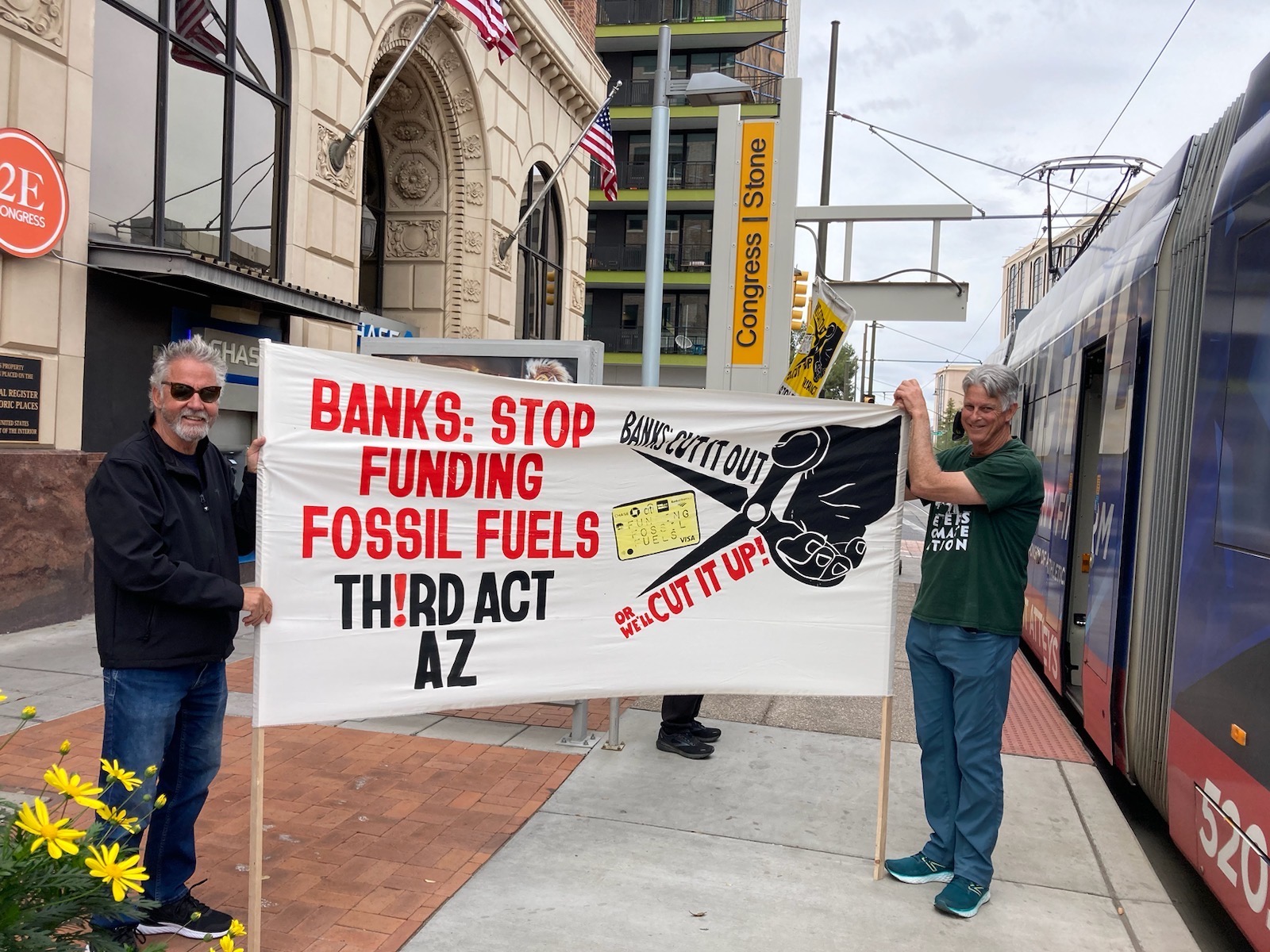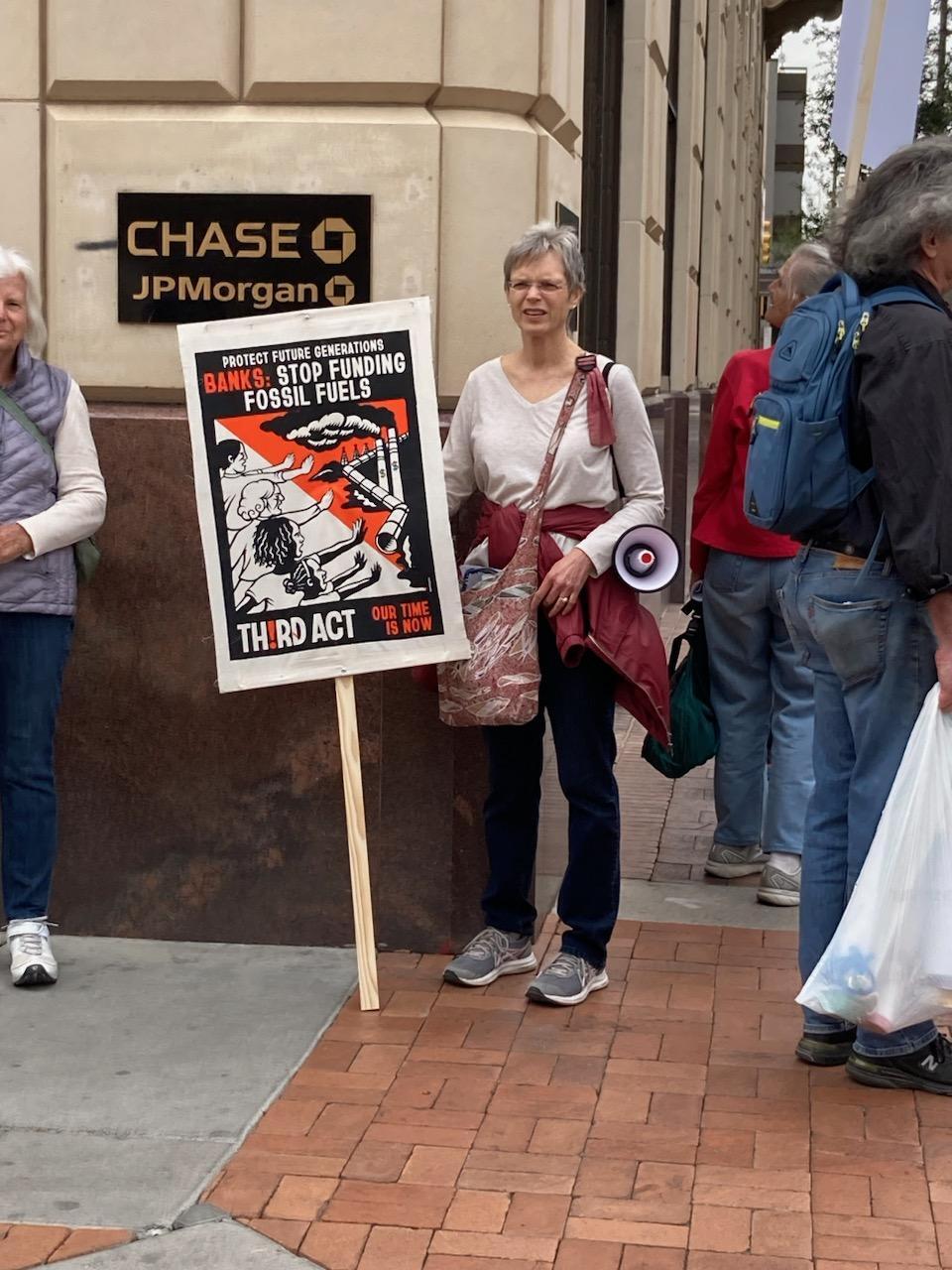By Jordan Gerard
Life after retirement doesn’t have to be stale, stagnant, or stereotyped. For some
seniors, it’s the beginning of the third act — the time of life in which many human
beings come into their own through years of experience and gained wisdom.
By Broadway’s standards, the third act is when the main tensions of the story
are brought to their most intense point, in which all of the main questions asked
throughout the play are finally answered.
In September 2021, at 60 years of age, environmentalist, author, and journalist Bill McKibben founded a working group for “experienced Americans” — those over 60 — to bring together individuals with a multitude of life experience, skills, and resources to build a better tomorrow. He aptly named it Third Act. This past May, McKibben
held a virtual meeting for Arizonans over 60 to introduce them to the organization’s newest chapter.
McKibben has been passionate and active all his life. He wrote his first book about climate change, titled “The End of Nature,” in 1989, when he was just 29 years old. A dozen more books followed. With a passion for writing, McKibben has penned pieces for the New Yorker and numerous other national news outlets. He founded 350.org — a global climate movement that encourages renewable energy instead of fossil fuels — with a group of university friends in 2008. The organization has hosted 20,000 demonstrations in every country except North Korea, McKibben said. In 2009, they hosted 5,200 simultaneous demonstrations in 181 countries.

Fueled by passion and years of experience in activism, McKibben didn’t slow down after retirement. He notes that older Americans are poised to be a powerhouse for protecting the climate and strengthening democracy.
“I looked around me and saw many others my age who were ready to go on working for a better future,” he said. Older Americans make up about 17% of U.S. demographics. McKibben and his generation saw a period of remarkable social, cultural, and political transformation, such as the women’s rights movement, the height of the civil rights movement, and modern environmentalism. It is firmly embedded in their generational DNA, he said.
As he and his generation moved throughout life in their “second act,” they may have been more interested in consumerism than citizenship, he says. Now many of them have grandchildren and great-grandchildren. Though political scientists say people become more conservative as they age, McKibben doesn’t think that’s necessarily true. This generation has emerged in their third act with time, energy, and ability to renew youthful commitments to justice, he said.
Though the Arizona chapter is in the early stages of development, the group is looking forward to tackling local issues that align with Third Act’s national focus on the climate and democracy crises. State-level meetings are a mix of virtual and in-person, while various national meetings are virtual and include thousands of volunteers.
Members of Working Groups actively attend standouts and protests. McKibben said Third Act’s National Day of Action took place in March with demonstrations in 100 cities that protested banks funding the climate crisis. Other places had day-long sit-ins, but since they’re older, they made sure to bring rocking chairs, McKibben joked.
“In our younger years we wouldn’t have imagined, say, that Lake Powell would shrink to nearly nothing, or that a mob would invade the White
House and kill police officers to stop the counting of votes,” he said. “We don’t want that kind of world.”
Members of the group have different experiences with activism. Some fought for women’s rights or the first Earth Day. Other people are spending well-earned free time getting to know the ropes of organizing and making an impact. Collectively, they want to make the best use of their remaining years. Not for themselves, McKibben notes, but for the greater good and future generations.

Third Act bridges the age gap, too. While the “Greta” generation is comprised of extremely passionate young people fighting for our planet, McKibben said they lack the structural power to make change. And it’s no secret that people 60 and older are still the largest voting demographic in the U.S. McKibben recognizes that his generation, and those involved in Third Act, have the power to backstop the Gen Z vote and be “helpful as heck” in backing up young activists, he added.
It’s an effort that allows Third Act’s purpose to go beyond activism.
“It lets people become not just old, but elders [are] reaching back to help the next generations, and to learn from them at the same time,” McKibben said.
A 10-person advisory council, including McKibben, guides Third Act, while a smaller team organizes, campaigns, and coordinates operations. There are 15 Working Groups established around the U.S., with three more in formation. They also have four groups that focus specifically on retired union members, art creatives, faith groups, and educators. To sign up as a member of a Working Group, read the agreement and fill out the form online. To learn more about Third Act, visit www.thirdact.org.
Read more Good stories from Green Living Magazine.






